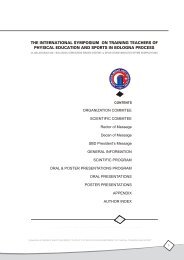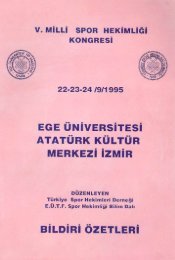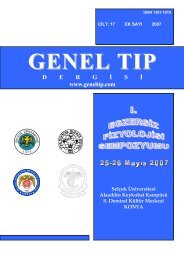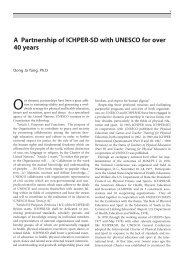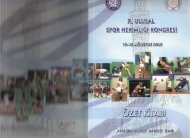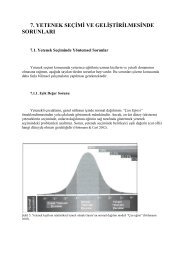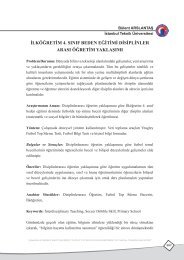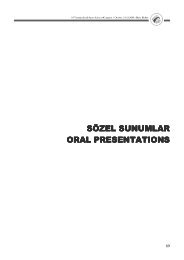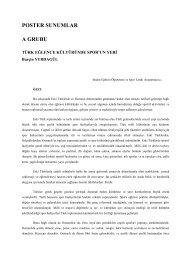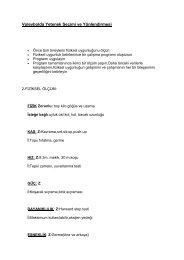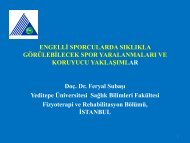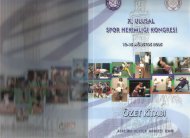KARDÄ°YORESPÄ°RATUVAR EGZERSÄ°Z TESTLERÄ° ... - Spor Bilim
KARDÄ°YORESPÄ°RATUVAR EGZERSÄ°Z TESTLERÄ° ... - Spor Bilim
KARDÄ°YORESPÄ°RATUVAR EGZERSÄ°Z TESTLERÄ° ... - Spor Bilim
You also want an ePaper? Increase the reach of your titles
YUMPU automatically turns print PDFs into web optimized ePapers that Google loves.
7.ULUSLARARASI SPOR BİLİMLERİ KONGRESİ27-29 EKİM 2002KONGRE - PANELLERCopaAmericaRoberto CarlosFigure 2. Activity profile of Premier League players and South American internationals (top), one of whom is highlighted(bottom).3. Physiological Responses during MatchesPhysiological responses to soccer confirm the predominantly aerobic nature of activity. Average heartrates are around 170 beats min -1 with only small variations about this value. Estimates of metabolic loadingsuggest that the relative VO 2 during soccer is about 75% VO 2 max (Bangsbo, 1994). Muscle glycogen storescan be depleted towards the end of a game and their reduction accompanies fatigue. Blood lactate values arevariable, being dependent on the activity profile prior to sampling. Game skills such as dribbling the ball andunorthodox movements add to the energetic demands of the game (Reilly and Ball, 1984). This observationhas implications for the use of the training drills with the ball. The reduced glycogen stores at the end of thegame mean recovery processes need to be accelerated prior to re-engagement in further matches.The depletion of glycogen stores towards the end of a game may be prevented by avoiding hard trainingthe day beforehand. It is important to have a tapering of training in preparation for each match. This ideal maybe difficult to realise when the competitive fixture list is highly congested. The glycogen stores can be boostedpre-match by an appropriate diet in which carbohydrate intake is emphasised.In view of thermal strain during matches, attention to fluid intake is important. Water ingestion can reducethe negative effects of dehydration but energy drinks are helpful in providing some glucose.The comparison of performances by South American national teams and top European club teamshighlights the higher intensity of matches in Europe. The observations on match-play have implications fortraining, in order to remedy deficiencies in fitness measures. This applies particularly during pre-seasonconditioning, recovery from injury, regaining place in the first team formation. The findings, particularly withrespect to fatigue and environmental influences, have consequences for nutritional strategies and for trainingpurposes. In particular, optimal strategies for recovery from match demands are important at key phases of thecompetitive season. Warm-down, fluid and energy replacement post-game and later modification of the trainingstimulus are parts of such strategies.356



